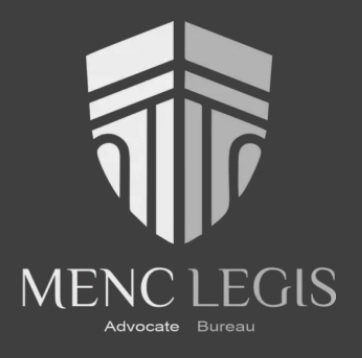posted 3 months ago
Author


No results available
ResetThe Advocate Bureau offers an individual approach to legal support for commercial activities of legal entities. The consulting services, taking into account the specifics of national legislation, include developing constituent documents, drafting and reviewing complex contracts, monitoring the fulfilment of obligations by counterparties, representing clients’ interests before administrative and judicial bodies, as well as interacting with other commercial entities. In addition, a feature of the professional activity of the firm includes qualified alternative or pre-trial settlement and resolution of property disputes.
In commercial law, the current activities of the Bureau primarily involve addressing client inquiries and clarifying legislation related to activities regulated through notification procedures by authorised bodies, as well as issuing permits via a special electronic system. Furthermore, the bureau addresses issues related to differentiating the liability of legal entities for violations in licensing, permitting and notification procedures.
A recent case concerned a situation of determining whether a legal entity’s activity required a permit before the start of production and sale of a special chemical substance, wherein there arose a necessity to conduct comprehensive laboratory tests. Based on the results of these tests, the substance was recognised as absolutely safe for use, which legally eliminated the need to obtain a permit from any authorised body. Also, certification was established as optional for manufactured products.
Over the past 12 months, the bureau has assisted in significant commercial projects, including legal examinations and consultations on the authenticity, validity and sufficiency of documents submitted by applicants to the Ministry of Investment, Industry & Trade or other authorised organisations. These projects involved verifying that applicants are owners or suppliers of international brands – such as official distributors, dealers, sales representatives or their distributors – ensuring compliance of direct import contracts with national legislation, providing preliminary information on the country of origin and production of goods, assessing the presence of international retail networks of brand owners and registering brands in the Global Brand Database of the World Intellectual Property Organization, etc.
A draft Resolution of the Cabinet of Ministers of the Republic of Uzbekistan has been developed, underwent legal review by the Ministry of Justice and is now being coordinated with the relevant ministries and departments. This act will approve Regulations for the formation and maintenance of a register of local manufacturers of specific types of goods. This will, in turn, enable the production of globally competitive goods and create favourable conditions for import substitution.
Enterprises constantly adapt to technological changes, which arise from improvements in regulatory legislation. No enterprise is insured against such business conditions. National legislation offers several norms to solve these issues. It is established by law that regulatory legal acts complicating entrepreneurial procedures, imposing new obligations on business entities or establishing new liability measures come into force no earlier than three months after their official publication. Meanwhile, the legislation stipulates that new laws apply to existing investments made in Uzbekistan before the law on investments and investment activities took effect, but only in the part that provides the most favourable treatment to the investor.
Today, no industry, whether in the private or public sector, is immune to cybersecurity vulnerabilities. It is incorrect to single out any industry as having a higher risk. The whole essence of the problem is how accurate and valuable the information is that constitutes a commercial or other legally protected secret. In this context, national legislation imposes various liabilities for collecting confidential scientific, technical, industrial, economic, commercial or similar information without the owner’s consent, especially when done with the intent to disclose or use it, potentially causing material damage to enterprises. Therefore, to mitigate or prevent hacking and unauthorised access to enterprise information systems or databases, it is essential to define the confidential nature of information accurately and store it in compliance with laws on commercial secrets, personal data, cybersecurity, informatisation and related regulations.
Recently, in the Republic of Uzbekistan – as in many other countries – newly established and existing companies have increasingly focused on addressing ESG issues in their operations. In this context, the bureau is actively involved in the process of assessing the compliance of company development strategies with current laws on environmental control, environmental expertise, environmental audit, labour protection, gender equality, protection from harassment and violence, anti-corruption, conflict of interest and more – ensuring that these strategies are adapted to modern realities.
If the principal is interested in investing in a specific region of the Republic of Uzbekistan, they provide the bureau with a technical assignment detailing all relevant issues. Based on the processed technical assignment, the bureau provides a written reference on the current legislation as of the requested date, thoroughly outlining the necessary explanations. This ensures that the principal receives comprehensive information about the investment climate within the local legal framework.
A relatively new trend in national jurisdictions is resolving disputes arising, or likely to arise, from all commercial relationships, whether contractual or non-contractual. Following the adoption of the law on international commercial arbitration, commercial entities are increasingly interested in this method of dispute resolution. In the majority of cases, companies either enter into separate arbitration agreements or include arbitration clauses in their contracts. Arbitration is expected to soon become the preferred method of dispute resolution for commercial entities over ordinary litigation.
More Locations
No results available
ResetMain Guide
posted 2 years ago
Commercial or mercantile law relates to the interactions, rights and conduct of individuals or businesses engaged in trade and commerce…
No results available
Resetposted 2 months ago
Arbitration is a procedure wherein a dispute is submitted to one or more arbitrators who make a binding decision on the dispute. By choosing arbitration, parties opt for a private resolution rather than going to court…
posted 2 months ago
International trade law includes the appropriate rules for handling trade between countries, whereas customs is an authority or agency in a jurisdiction responsible for collecting tariffs and controlling the flow of goods…
posted 2 months ago
Business law refers to the body of law that applies to the rights, relations and conduct of persons and organisations engaged in commercial and business activities – also safeguarding the rights of shareholders…
No results available
ResetSign up for the latest advisory briefings and news within Global Advisory Experts’ community, as well as a whole host of features, editorial and conference updates direct to your email inbox.
Naturally you can unsubscribe at any time.
Global Advisory Experts is dedicated to providing exceptional advisory services to clients around the world. With a vast network of highly skilled and experienced advisers, we are committed to delivering innovative and tailored solutions to meet the diverse needs of our clients in various jurisdictions.